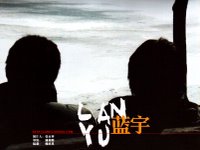 I don't expect much feedback about this one, most of the bookworms whom I talk to haven't even heard of it, but its elegant prose and sober pondering of a poet's life leave a remarkable impression in me.
I don't expect much feedback about this one, most of the bookworms whom I talk to haven't even heard of it, but its elegant prose and sober pondering of a poet's life leave a remarkable impression in me.Hermann Broch's
The Death of Virgil revolves about the poet's wish to burn his masterpiece, The Aeneid, and creates out of his signified keen senses and heightened perceptions a rich vision, with full actuality, the religious, philosophical and political impulses of the time. The novel should be read as an epic poem in four parts (water, fire, earth, air) that parallel to four movements of a symphony in which the manner of the theme and variations of each successive part serves as some kind of commentary and reiteration on the parts that have preceded it.
The book is arduous in reading, strenuous in contemplating the richly lyrical prose. Woven and sifted throughout are reflections and perceptions of Virgil's febrile yet lucid thoughts in such rocking rhythms that illuminate, to the full actuality, the macabre sensation of the drifting journey on which the poet is being carried by the bark of death. Death's signet was graved upon his brow. The epic closely accounts for the last 24 hours of Virgil's life as soon as the near-death poet returns to Rome from Athens. The uninterrupted flow of lyrical speculation begins at the port of Brundisium where the bark docks, lingers in the mental suspension between life and death, between the "no longer alive" and "not yet dead", and ends with the journey to death, to nothingness, to a dimension of non-recollection and stillness.
Truth seems to be the recurring theme. The notion of truth is being illuminated and brought to full elaboration through the repeating insistence of reflections on life, death, memory, knowledge, perception, and philosophy. As the poet approached death, he admits with bitterness and cold sobriety that he has pursued a worthless, wretched literary life. The Aeneid, which is acclaimed by Caesar and to whom it is dedicated, has been a mere indulgence of beauty, self-sufficiently limited to the embellishment of concepts long since conceived, formed, and known, without any novel contribution in it. The truth of artistic inadequacies, lack of perceptions, thirst for superficialities, and egotism yields the decision to mock his works. Despite Caesar's effort to cajole Virgil, the poet comments that he lacks the perception, to which he never takes the first step, and yet nobody has ever attained the knowledge of truth of such perception.
The stream of consciousness technique renders the poet's final hours to the full actuality. In fact, Virgil regards death as the most significant event of his life (perception and knowledge of truth?) and is full of anxiety lest he miss it. His sense of time seems to be warped and each passing second has grown to some immense, throbbing, empty space which is not to be linked. The body and its human qualities are denuded and are stripped to the naked soul with the most naked guilt. For Virgil, death is part of life and the understanding of death enlightens meaning of life. Strong than death and the shackle of time is fate, in which the final secret of time lay hidden. It is for this very secret of time (and death) that the suspense and tension of the book not being thwarted.
The conversations are reproductions of external events and actual dialogues (Aeneid, Georgics, Eclogue, Horace Carmina) and their inclusion into the book's inner monologue (the narrative seems to have proceeded in the third person but soon has discerned that narrative constitutes to an inner monologue made up of Virgil's dreams, reflections, visions, and delusions) gains them an abstract touch. The flow of the book presses on through various tempi according to the degree of Virgil's consciousness. The more headlong the tempo (which usually occurs during Virgil's conversations with his friends, attendants, and Caesar), the shorter the sentence. The slower the tempo becomes, the more complicated the sentence structure (i.e. Part 2 - Fire). Virgil's reflections and musings manifest some interminable, richly lyrical prose that mirrors the dying poet's thoughts and ravings.
The writing also deftly alludes to the religious impulse at the time of Virgil. Talks of the coming of salvation bringer prevail in Virgil's conversations with Caesar, who denies the need of such salvation. In various occasions Virgil forebodes the coming of a savior who will not only live in the perception, but in his being the world will be redeemed to truth, whom will conquer death and bring himself to the sacrifice out of love for men and mankind, transferring himself by his own death into the deed of truth. Virgil's audacious statement signifies the turning point in history, the crisis of the godless era between the no longer antiquity and the net yet of Christianity.
From Broch's own words, nothing is really "reported or perceived" in the book but what "penetrates the invisible web of sensual data, fever visions and speculations." The richness of the writing and its lyrics sharpens the contours of the concrete and brings to full actuality Virgil's musings and memories. It's a strenuous, challenging read that requires undivided concentration.























